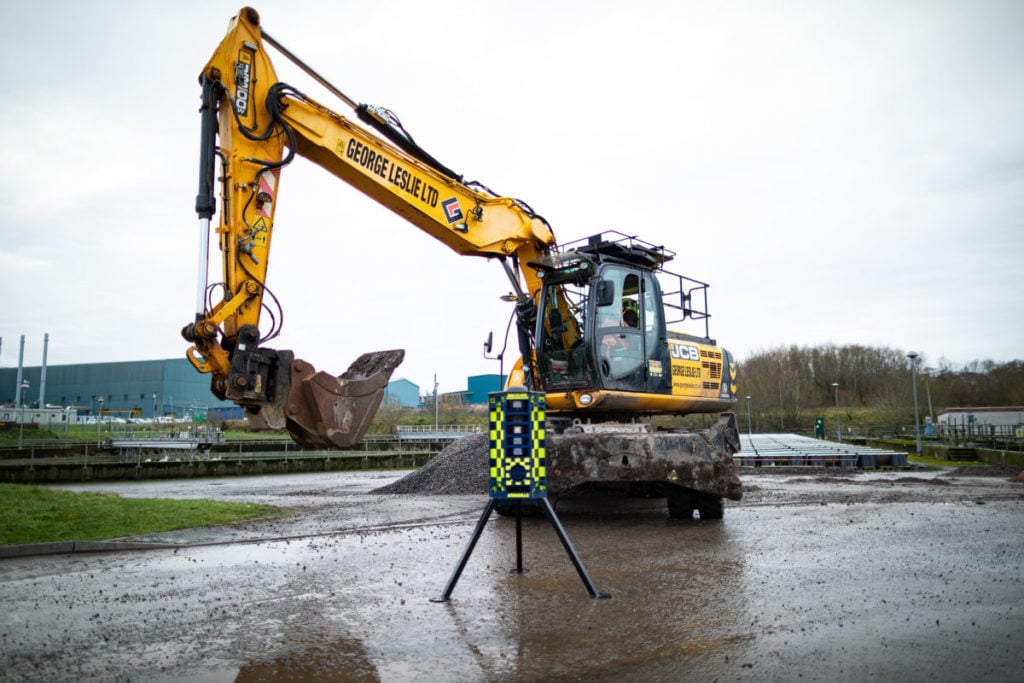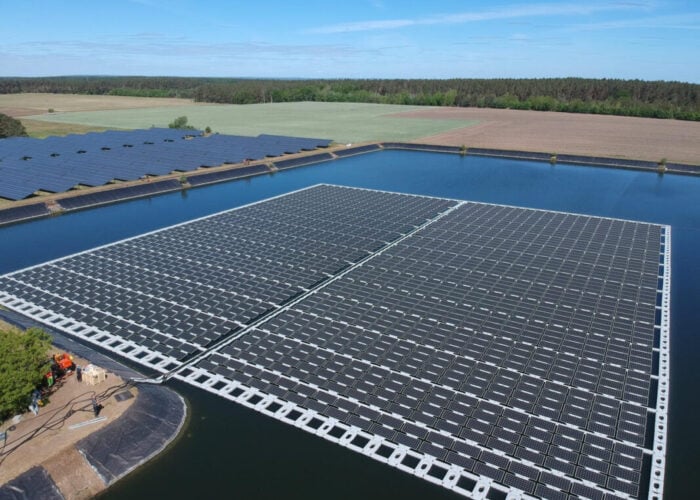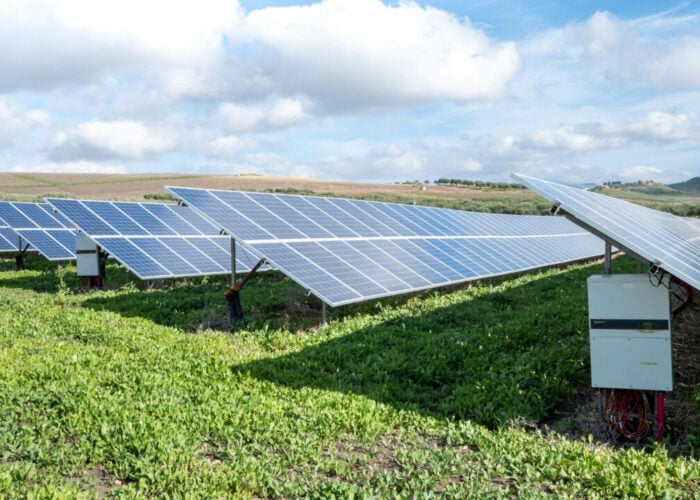
“Once they start to strip the panels away, taking kilometres of cable at a time, cutting the inverters and stripping them off panel-by-panel, row-by-row… they can very quickly damage the energy that’s being harvested or completely shut that solar farm down altogether,” says Gary Higgins, director of commercial operations at UK security company DeterTech.
A paper published by DeterTech this week reports a fourfold increase in recorded thefts from solar projects between 2021 and 2022. The reasons are varied, but Higgins tells PV Tech Premium: “In my experience, I don’t think the [solar] industry really thought in any detail about security during the early days and they’re very much having to play catch-up because of that.”
Unlock unlimited access for 12 whole months of distinctive global analysis
Photovoltaics International is now included.
- Regular insight and analysis of the industry’s biggest developments
- In-depth interviews with the industry’s leading figures
- Unlimited digital access to the PV Tech Power journal catalogue
- Unlimited digital access to the Photovoltaics International journal catalogue
- Access to more than 1,000 technical papers
- Discounts on Solar Media’s portfolio of events, in-person and virtual
Developing, sourcing, building and maintaining solar PV projects routinely runs into the millions of dollars of long-term investment, and the impacts of serious theft on a solar asset owner can result in lost revenues, lost energy generation and sometimes lost insurance and ability to operate.
Copper
The price of copper has been fairly high recently, and the London Metal Exchange currently predicts that it will rise by around US$100/tonne through April next year. Where expensive commodities are, criminals will follow; a solar PV project is, from a thief’s perspective, an often poorly-policed field in a rural area covered in copper wire and expensive solar modules that can be plucked off their mounts and resold.
“There’s a perfect environment for criminals to work undisturbed,” Higgins says. “They are running a business in the same way we do, so they work on risk and reward; if it’s low risk and high reward, you can expect that, at some point, you’re going to become a victim.”
Indeed, he confirms that most solar project theft is committed by organised crime groups, notably in the UK and the Netherlands where DeterTech has experience working with clients.
Higgins says that his company has an information sharing agreement with the National Police Chief’s Council which gives it a broad base of data for metal theft across the UK.
“When you’re starting to see copper theft from solar farms, what you see are patterns of offending; the same people stealing copper cable from solar farms are the same people stealing it from telecommunications sites and alongside the railway.”
In its recently-published paper, the company says it had seen a 48% increase in the number of cable thefts between 2021 and 2022, the aim of which is to secure the copper inside the cables. The Dutch Association of Insurers, a representative body in one of the markets currently most plagued by solar crime according to Higgins, updated its website earlier this year to include an advice section for solar asset owners concerned about the risks of copper theft at their sites.
“When you don’t put security measures in place you become a soft target. Once the criminal element realise that, solar farms naturally become a target,” Higgins says.
Panel theft
Perhaps more surprisingly than copper, there are numerous instances of criminal gangs stealing entire solar modules, sometimes in very large numbers. Higgins says that the black market for solar panels is apparently quite active.
“We’ve worked with customers whose solar farms have been closed down, because so many panels have been stolen to the point that the insurers are no longer insuring the site and the site is completely out of action.
“When they’re stolen, they’re often stolen in bulk – it’s organised criminality, they’ll strip the systems down completely and steal as much as they can carry away. I’ve been to one solar farm where three quarters of the panels on a 5MW site had been stolen.”
Higgins tells PV Tech Premium a story of a site where over 150 modules were stolen. Shortly after the theft, DeterTech noticed some modules from the same manufacturer for sale on eBay. They bought one as a test, which gave them an address, and confirmed that it was a stolen module by use of their SmartWater forensic technology. Police obtained a warrant and searched the address, but managed to recover just 30 of the 150 stolen panels.
It turned out that the group behind the theft had been routinely exporting stolen modules to Madrid to an unknown buyer as part of the “active” secondary market for modules.
Developers and EPCs
Higgins says that the project developers, engineering, procurement, and construction (EPC) contractors and operations & maintenance (O&M) companies should all be considering how to manage security.
“The first step should always be deterrents,” he says, which goes as far back as site selection. He says that developers should consider if a proposed site is in a high-risk area or if there have been similar crimes nearby; whether there are natural barriers like canals, hedges or railways that add security; whether the local law enforcement is aware of the value and threats posed to a solar site and whether amendments to the site – like adding rocks, ditches or other obstacles – can make it more secure.
Higgins continues: “My preferred option is to work with the developers before they’ve put a spade in the ground because we can tell them a lot.”
The development and EPC portion of the solar industry is on track to grow massively. The EU has a revised target of 425GW of deployed solar PV capacity by the end of the decade following the updated National Energy and Climate Plans (NECP) from a number of states. Alongside many, similarly ambitious targets in the rest of the world, the sheer number of solar crimes is likely to rise with more panels on the ground.
Continuing, Higgins says that an EPC is “very much at risk during construction, because you’re going to have reels of cable and piles of solar panels all over the place. What are you going to do about that? How are you going to protect those?”
Beyond the initial construction phase, Higgins says that solar site insurers often insist only on the “most primitive CCTV, but not much else.” A truly secure site would assess entrance and exit points, liaise with law enforcement and invest in a security design specifically tailored to its needs, he says.
He encourages the use of forensic technologies like SmartWater, which DeterTech owns and which can provide traceability for stolen modules and often act as an effective deterrent for criminals.
Damages
Insurers can become an issue for asset owners after crime as well. The ramifications of crime victimhood begin with liability, Higgins says, as the owner of any industrial site is ultimately responsible for human safety and best practices at the site.
Given the level of electrical current passing through parts of a solar PV installation, criminal activity potentially puts life at risk and asset owners “are almost required to do something about it to show that you’ve taken reasonable steps to prevent that type of criminality and reduce the risk to those individuals,” he says. Insurance naturally becomes an issue here as the site owner’s liability comes into play, as well as the potential reluctance for insurers to back projects which have suffered massive losses, as mentioned above.
More broadly, DeterTech observed in its report that the rise in solar theft coincides with the rise in inflation and the cost of living crisis across Europe. A less stable and accessible economic environment has driven solar criminality, which in turn then causes ramifications for the energy transition and potentially for provision of renewable energy in areas most severely affected by theft.
Higgins adds that it is important to educate local police on the importance of solar projects to local communities, and establish collaborations between developers, local bodies, EPCs, asset owners and law enforcement to develop a strategy to protect a site.
Our sister site Energy-storage.news published a feature earlier this year on physical site security for battery energy storage systems.







